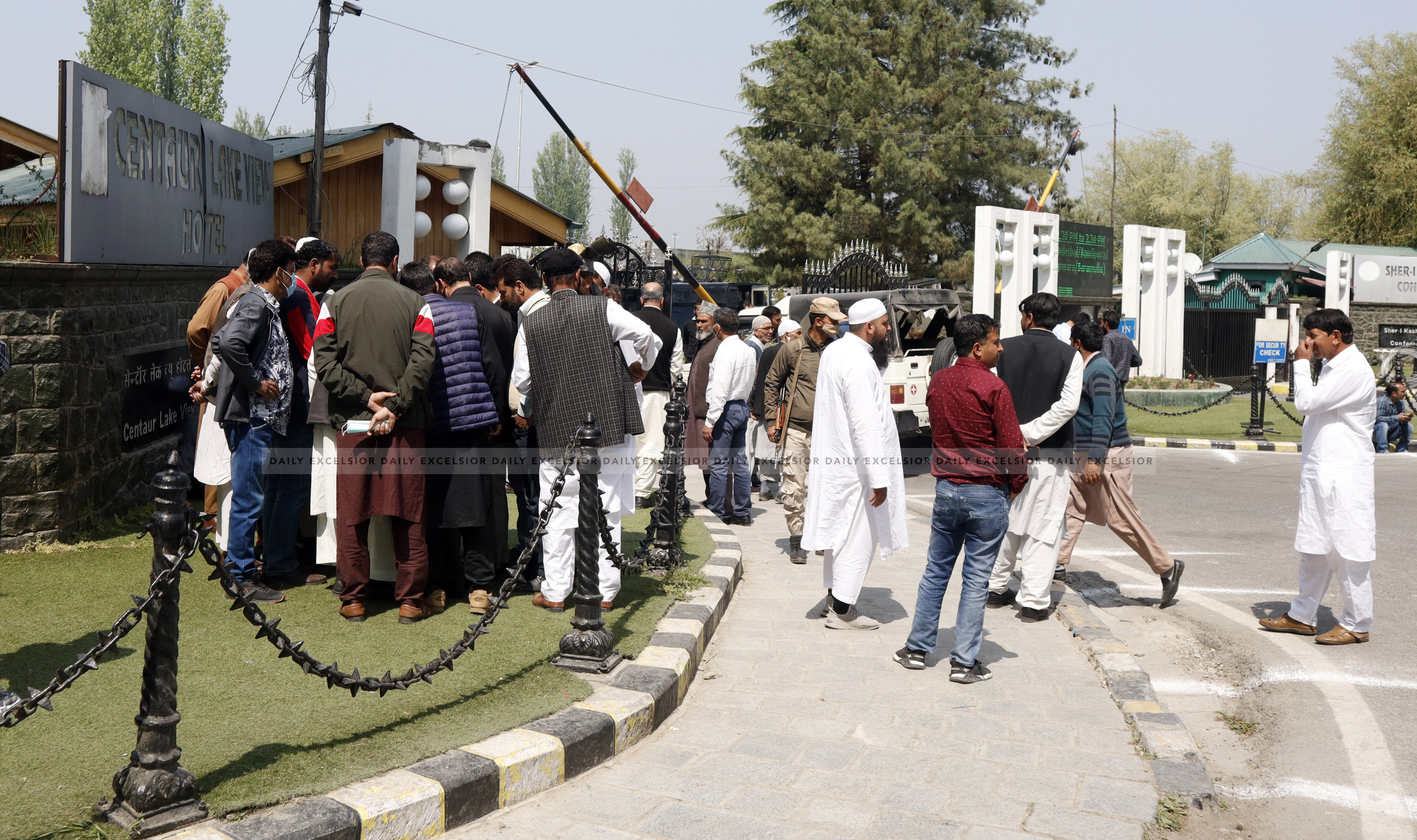Srinagar, Apr 5: The Delimitation Commission, which is on a two-day visit to Jammu and Kashmir to meet public and civil society groups for receiving suggestions and objections on its draft proposal, on Tuesday held discussions with scores of representatives and individuals here.
Scores of individuals and groups including from many political parties, and Panchayati Raj Institutions members, met the commission which has been tasked to redraw the boundaries of assembly and parliamentary constituencies in Jammu and Kashmir.
On Monday, the commission, headed by Justice (retired) Ranjana Prakash Desai, had meetings with public, civil society groups and political parties from all districts of the Jammu region.
The commission met delegations in two sittings. The first was from 10 am to 12 noon where people from Srinagar, Budgam, Anantnag, Kulgam, Pulwama and Shopian met the commission.
The second sitting was from 12 noon to 2 pm during which people from Ganderbal, Bandipora, Kupwara and Baramulla participated.
The members of the public and political parties raised various demands in terms of carving out new segments of assemblies and also raised objections about the draft in which various areas have been merged with other areas of assembly and parliamentary constituencies.
Apni Party state secretary, Muntazir Mohi-ud-Din, who met the commission, said the commission’s draft proposal has created inconvenience to people in many areas.
“Some areas have been cut off from their constituencies and joined with others, which has created problems for the people. We had already given representations to the commission through the deputy commissioners of the concerned districts, as well as to the Delimitation Commission and the Election Commission. We have raised the issue of many areas being joined with far away constituencies across the UT. We want them to be reconsidered,” he said.
The Apni Party leader said the party has also demanded an increase of an assembly constituency in Srinagar as the city has a huge population.
He said the approach of the commission was positive.
“They had called us today to discuss those issues. We raised our issues, we feel the approach of the commission is positive and we hope that our issues will be taken care of,” he told reporters outside the venue.
A civil society delegation from Budgam said they received a good response from the commission on their issue.
“I represent Halqa Gudsuthra A and B. The halqas have been clubbed with Chrah-e-Sharief by the commission. But, we are nearer to Chadoora constituency, so, we requested them to club with Chadoora rather than Chrar-e-Sharif. We have got a good response from the commission,” Ghulam Mohammad Mir, from Budgam, said.
However, many individuals said they were not allowed inside the venue despite being invited for the discussions.
Ali Mohammad, Sarpanch from Litter area of Pulwama said while he was called for the meeting, but he was not allowed inside the venue.
“They do what pleases them, this is just for formality,” he said.
The Commission was set up on March 6, 2020, with one year term. However, in the wake of the COVID-19 pandemic, its term was extended on March 6, 2021, by one year.
On March 14, it put its report in the public domain and invited objections and suggestions from people. The commission has published its report in the gazettes of India as well as Jammu and Kashmir. (Agencies)
Trending Now
E-Paper


